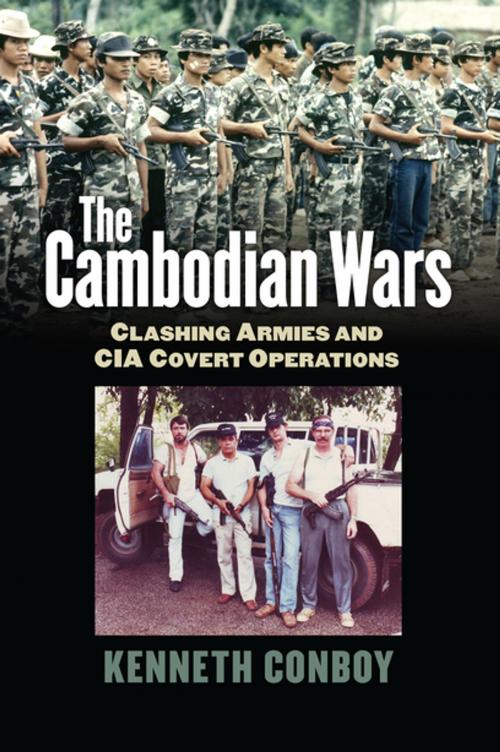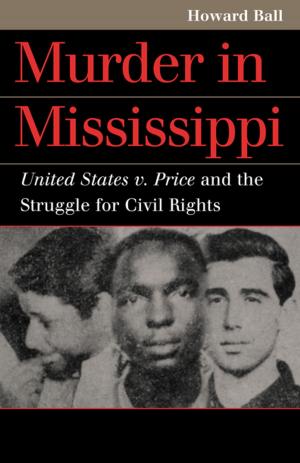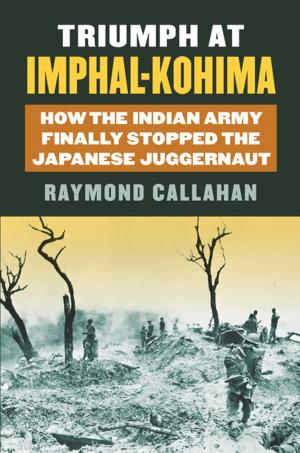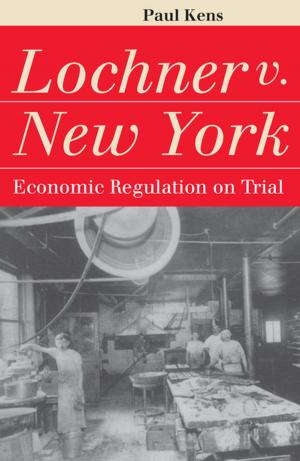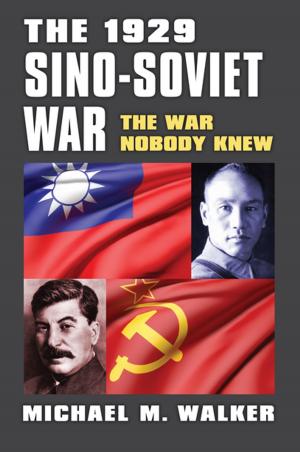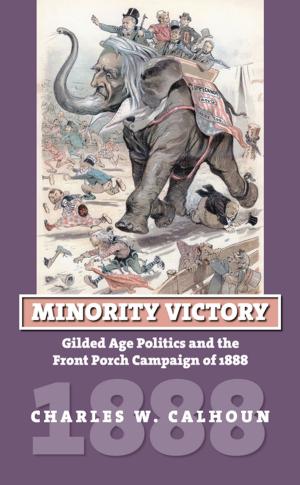The Cambodian Wars
Clashing Armies and CIA Covert Operations
Nonfiction, History, Asian, Southeast Asia, Military, Social & Cultural Studies, Political Science| Author: | Kenneth Conboy | ISBN: | 9780700628223 |
| Publisher: | University Press of Kansas | Publication: | April 23, 2019 |
| Imprint: | University Press of Kansas | Language: | English |
| Author: | Kenneth Conboy |
| ISBN: | 9780700628223 |
| Publisher: | University Press of Kansas |
| Publication: | April 23, 2019 |
| Imprint: | University Press of Kansas |
| Language: | English |
For most Americans, Cambodia was a sideshow to the war in Vietnam, but by the time of the Vietnam invasion of Democratic Kampuchea in 1978 and the subsequent war, it had finally moved to center stage. Kenneth Conboy chronicles the violence that plagued Cambodia from World War II until the end of the twentieth century and peels back the layers of secrecy that surrounded the CIA's covert assistance to anticommunist forces in Cambodia during that span.
Conboy's path-breaking study provides the first complete assessment of CIA ops in two key periods—during the Khmer Republic's existence (1970-1975), in support of American military action in Vietnam, and during the Reagan and first Bush presidencies (1981-1991), when the CIA challenged Soviet expansion by supporting exiled royalists, Republicans, and even former Communists trying to expel the Vietnamese from their country. Through interviews with dozens of CIA Cambodia veterans—as well as special forces officers from Singapore, Thailand, Malaysia, and Australia—he sheds new light on the contributions made by foreign intelligence services. Through information gleaned from the U.S. Defense Attache's Office in Phnom Penh, he offers a detailed look at the development of the Khmer Rouge military structure, while his use of Vietnamese-language histories released by the People's Army of Vietnam helps more fully illuminate the PAVN's participation in the Cambodian wars.
More than a simple expos of CIA activities, however, The Cambodian Wars is also an authoritative history of that country's struggles over half a century. Conboy examines Cambodia as kingdom, colony, republic, revolutionary state, and Vietnamese satellite, and offers fresh insight into the actions of key players—Norodom Sihanouk, Lon Nol, Sisowath Sirik Matak, Son Ngoc Thanh, and others—that will enlighten even those who think they know that country's history.
Three decades in the making, The Cambodian Wars tells a little known chapter in the Cold War in which non-communists pulled off a surprising victory. Featuring dozens of photos covering events from 1970 to the trial of Pol Pot in 1997, it is must reading for anyone interested in contemporary Southeast Asian history, CIA covert operations, and the Vietnam War.
For most Americans, Cambodia was a sideshow to the war in Vietnam, but by the time of the Vietnam invasion of Democratic Kampuchea in 1978 and the subsequent war, it had finally moved to center stage. Kenneth Conboy chronicles the violence that plagued Cambodia from World War II until the end of the twentieth century and peels back the layers of secrecy that surrounded the CIA's covert assistance to anticommunist forces in Cambodia during that span.
Conboy's path-breaking study provides the first complete assessment of CIA ops in two key periods—during the Khmer Republic's existence (1970-1975), in support of American military action in Vietnam, and during the Reagan and first Bush presidencies (1981-1991), when the CIA challenged Soviet expansion by supporting exiled royalists, Republicans, and even former Communists trying to expel the Vietnamese from their country. Through interviews with dozens of CIA Cambodia veterans—as well as special forces officers from Singapore, Thailand, Malaysia, and Australia—he sheds new light on the contributions made by foreign intelligence services. Through information gleaned from the U.S. Defense Attache's Office in Phnom Penh, he offers a detailed look at the development of the Khmer Rouge military structure, while his use of Vietnamese-language histories released by the People's Army of Vietnam helps more fully illuminate the PAVN's participation in the Cambodian wars.
More than a simple expos of CIA activities, however, The Cambodian Wars is also an authoritative history of that country's struggles over half a century. Conboy examines Cambodia as kingdom, colony, republic, revolutionary state, and Vietnamese satellite, and offers fresh insight into the actions of key players—Norodom Sihanouk, Lon Nol, Sisowath Sirik Matak, Son Ngoc Thanh, and others—that will enlighten even those who think they know that country's history.
Three decades in the making, The Cambodian Wars tells a little known chapter in the Cold War in which non-communists pulled off a surprising victory. Featuring dozens of photos covering events from 1970 to the trial of Pol Pot in 1997, it is must reading for anyone interested in contemporary Southeast Asian history, CIA covert operations, and the Vietnam War.
